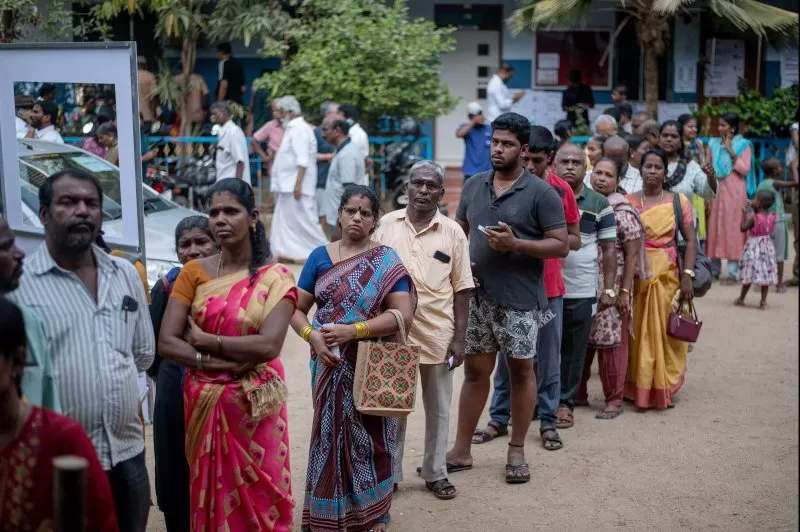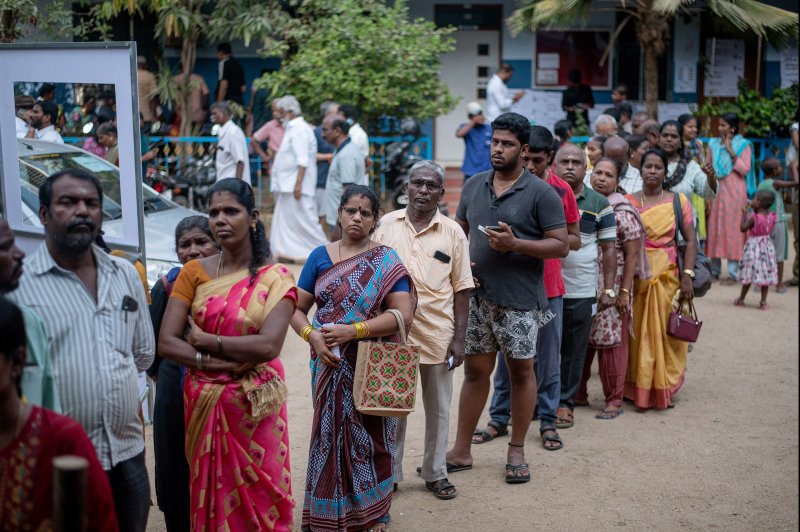Voters in line to cast their ballots Friday outside a polling station in Chennai, southern India, in a election for the 18th Lok Sabha since independence from Britain in 1947, a two-way contest widely expected to be won by the Bharatiya Janata Party, sweeping the country’s populist prime minister Minister Narendra Modi to a third term in office. Photo by Ragul Krishnan/EPA-EFE
April 19 (UPI) — Hundreds of millions of voters in India, the world’s largest democracy, are heading to the polls in a parliamentary election in which the ruling-Bharatiya Janata Party’s Narendra Modi is trying to win a third consecutive term as prime minister.
With 2,600 parties vying for the support of 969 million people eligible to vote at more than a million polling stations across 28 states and nine territories, the massive exercise in democracy is being staggered in seven phases over the next 44 days with voting getting underway Friday in 102 constituencies in 21 states with results expected June 4, three days after voting ends June 1.
Campaigning on Friday in Uttar Pradesh, one of 21 states where voting is underway, Modi expressed confidence voters would hand his BJP-led center-right National Democratic Alliance another large majority.
“Looking at our track record of the last 10 years, the people of Uttar Pradesh are going to form a strong BJP-NDA government dedicated to public service this time too,” he wrote in a post on X.
Modi’s main threat will come from the Congress Party of the Ghandi family dynasty and currently led by Rahul Ghandi, although several key opposition parties have joined forces in many states to take on the BJP which holds 303 of the 543 seats in the lower house, or Lakh Sabha, now up for grabs.
The prime minister is campaigning on his economic record of building the country into one of the world’s fastest-growing economies, slashing poverty and building new roads, railways and airports but income inequality and joblessness — especially in rural India — rising prices, increasing repression of dissent and political opposition, and religion are the biggest issues among voters.
India is a secular state but the BJP has been increasingly linked to Hinduism nationalism in a country with a substantial Muslim population of more than 200 million who have been the victims of discrimination and violence over decades.
The larger-than-life 73-year-old is offering more of what the BJP is dubbing the “Modi ki guarantee,” a cast-iron pledge for more economic development, more jobs, expanding welfare programs as well as a new common civil code enforcing the same marriage, divorce and inheritance laws for all regardless of sex, ethnicity and religion.
The code would represent a major leap forward from the existing system where different groups adhere to their own cultural practices, with Modi claiming it is a critical step in the fight for gender equality.

